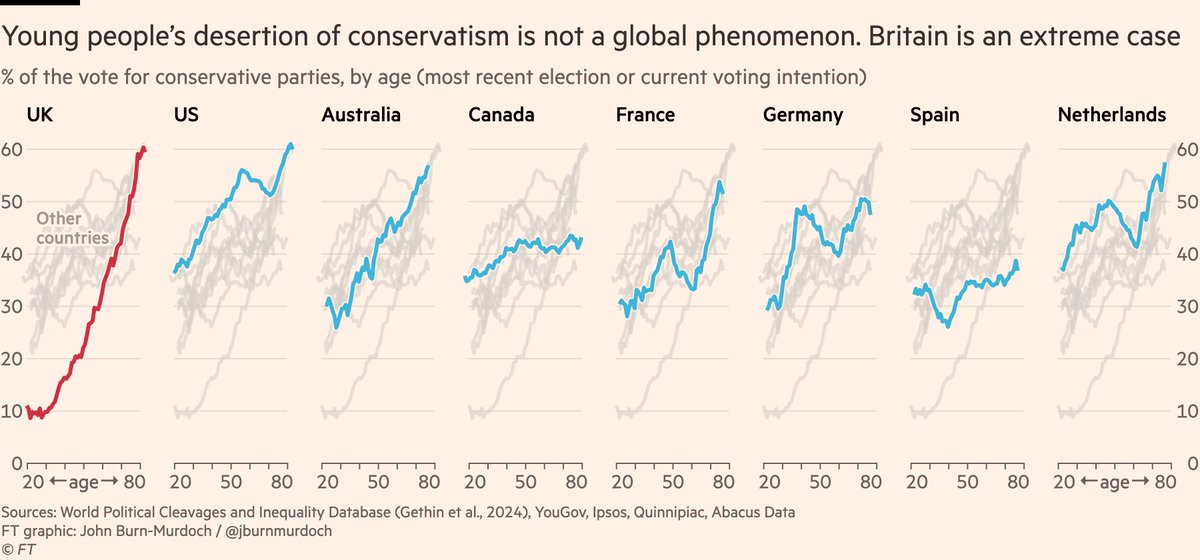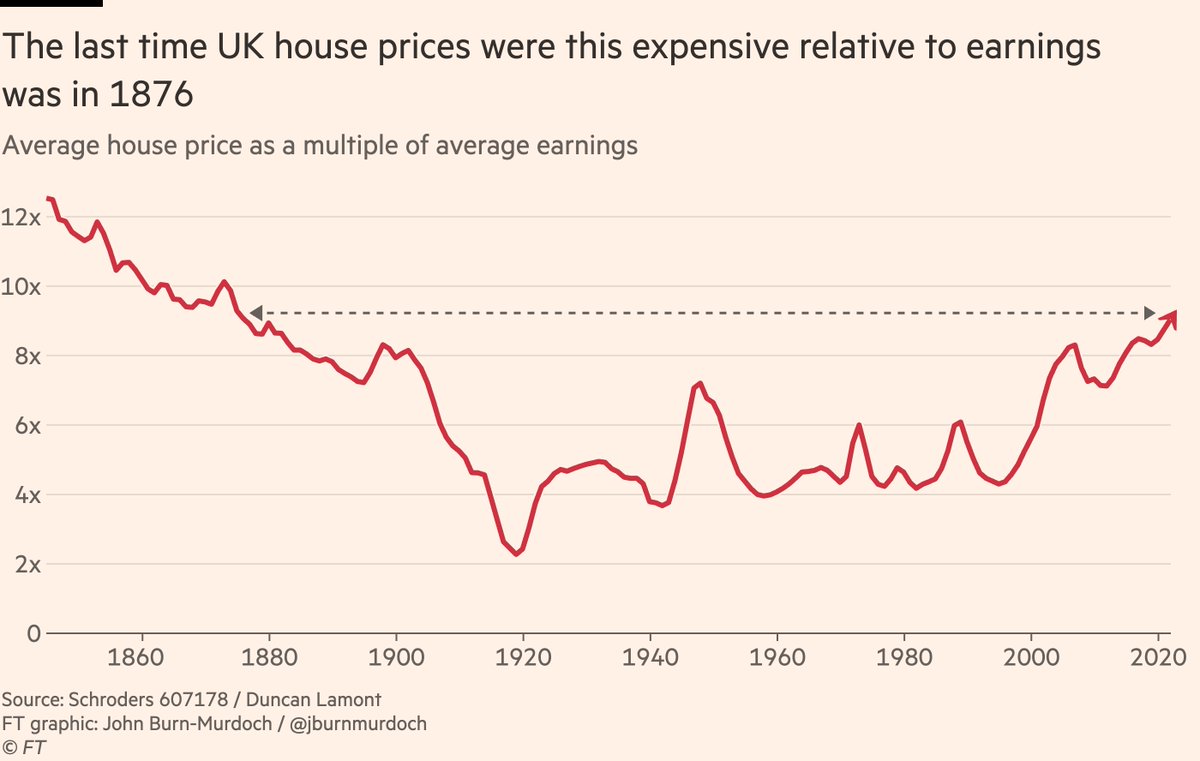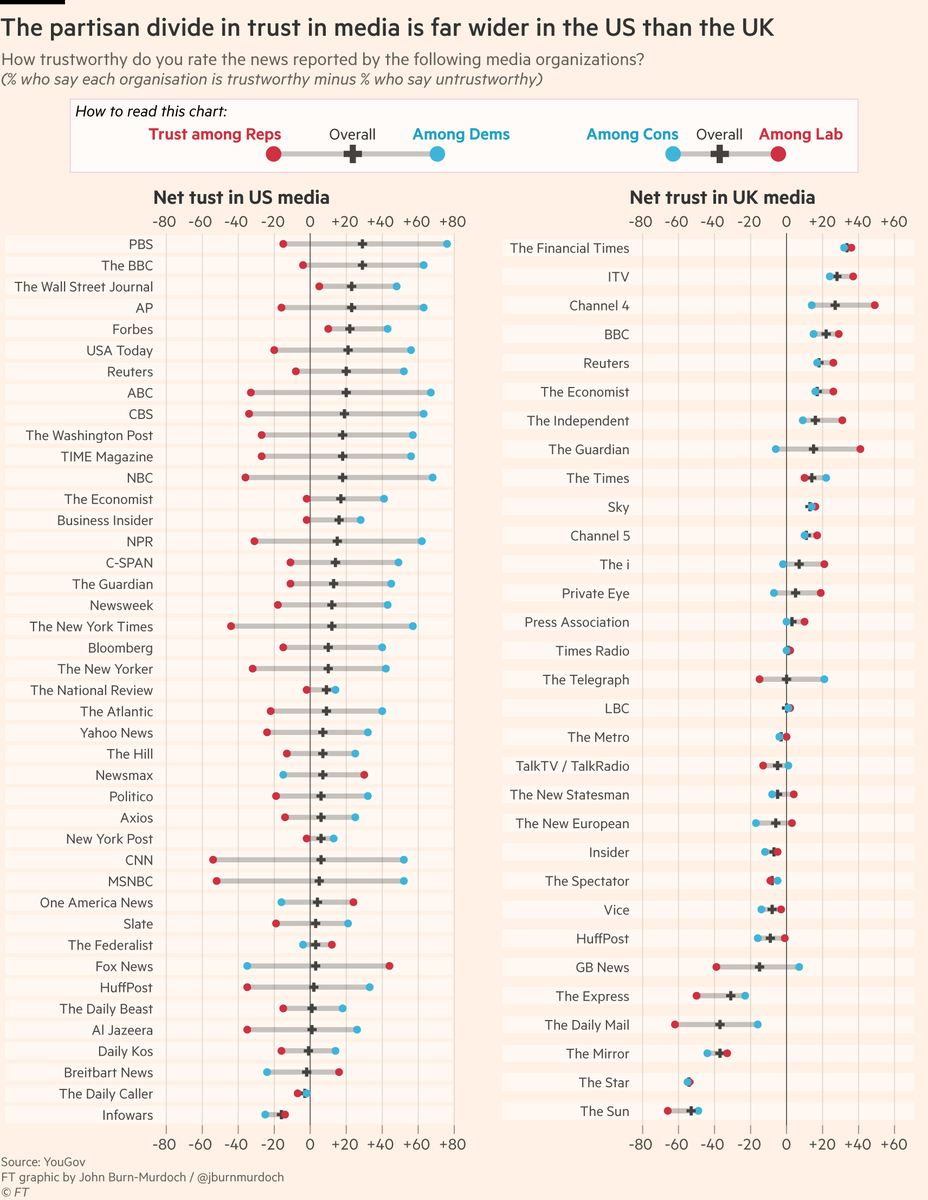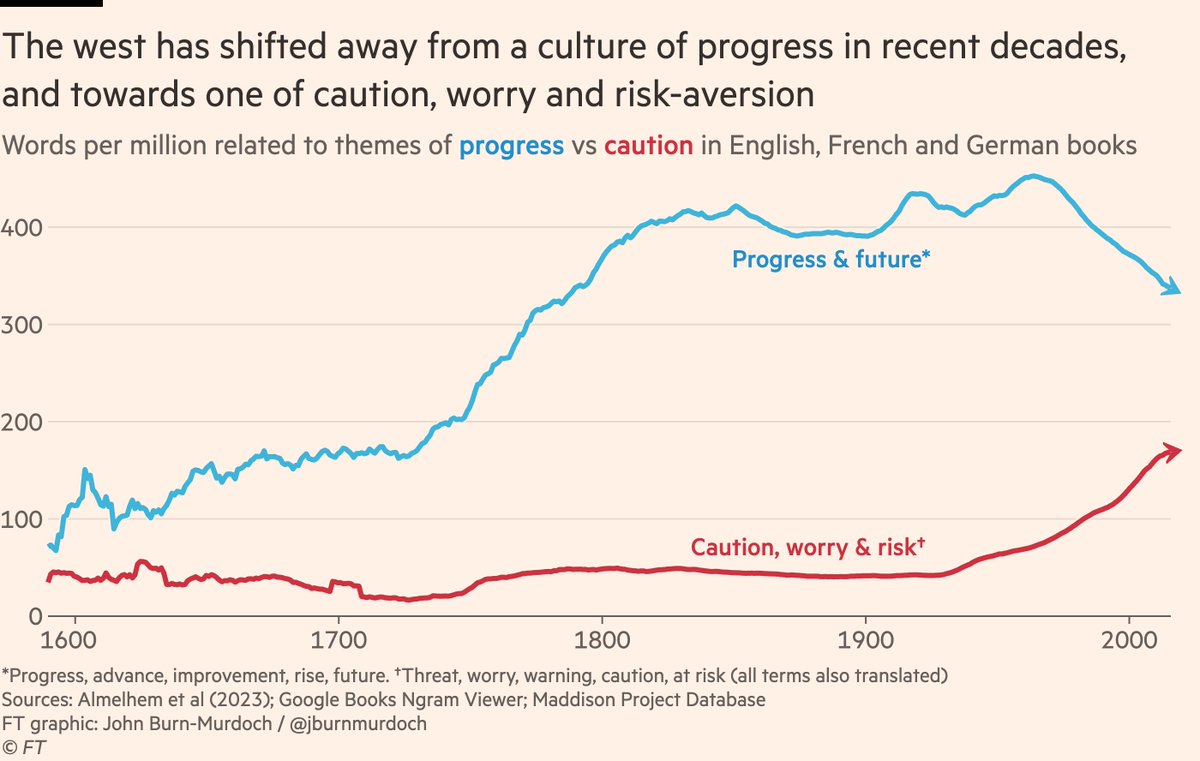The politics of America’s housing issues in one chart:
• People and politicians in blue states say they care deeply about the housing crisis and homelessness but keep blocking housing so both get worse
• Red states simply permit loads of new homes and have no housing crisis
• People and politicians in blue states say they care deeply about the housing crisis and homelessness but keep blocking housing so both get worse
• Red states simply permit loads of new homes and have no housing crisis
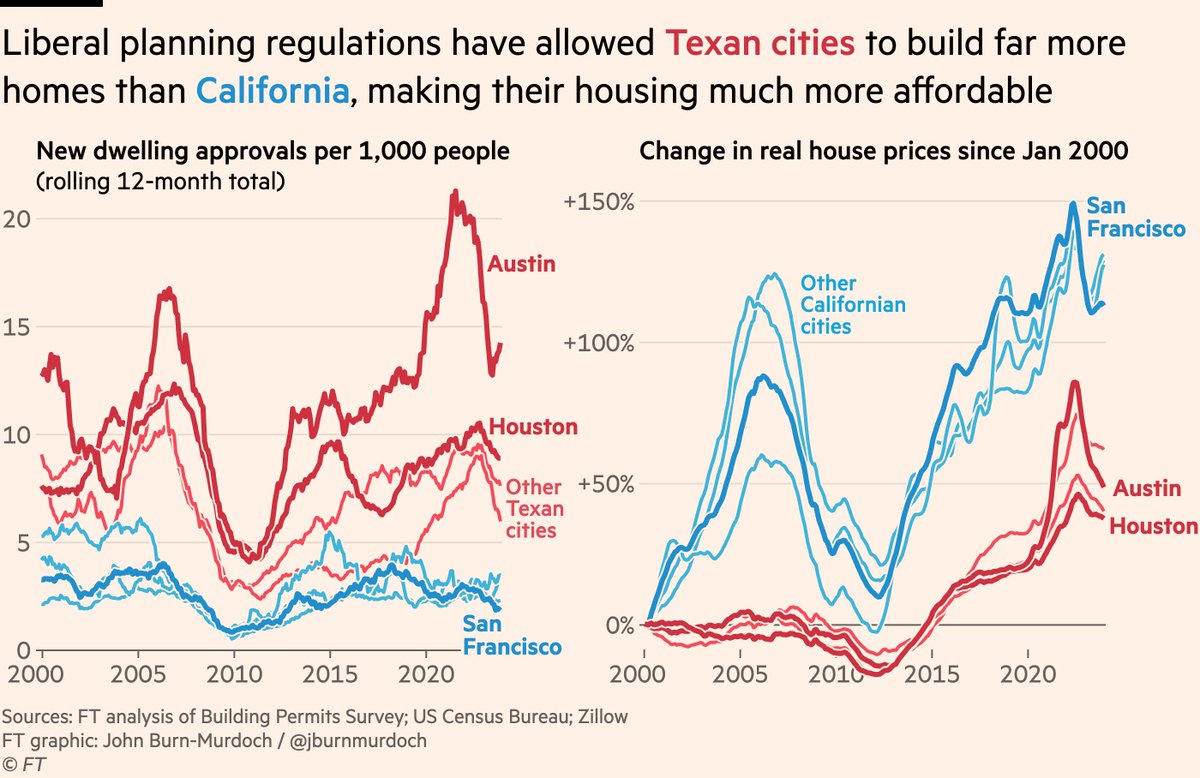
And if you were wondering where London fits into this...
It builds even less than San Francisco, and its house prices have risen even faster.
That cities like London & SF (and the people who run them) are considered progressive while overseeing these situations is ... something
It builds even less than San Francisco, and its house prices have risen even faster.
That cities like London & SF (and the people who run them) are considered progressive while overseeing these situations is ... something
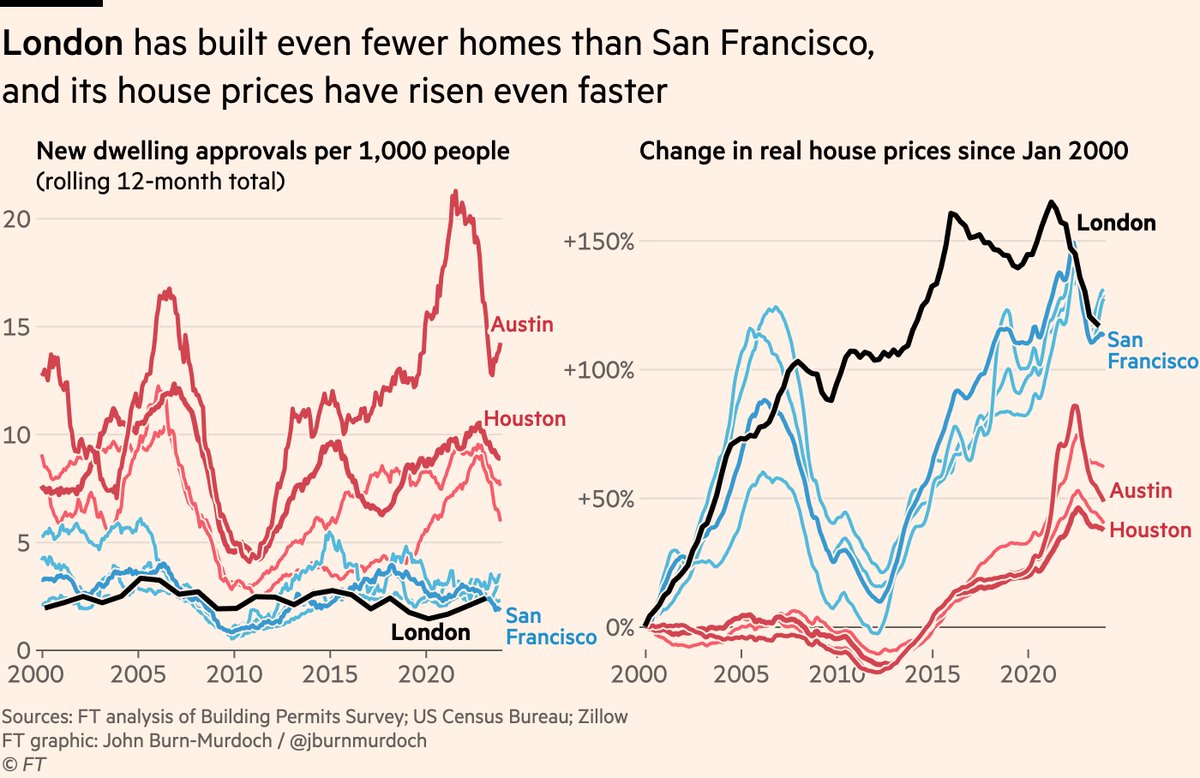
Those charts are from my latest column, in which I argue that we need to stop talking about the housing crisis, and start talking about the planning/permitting crisis, because it’s all downstream from that ft.com/content/de34df…
I dont think people realise quite how broken the planning/permitting situation is in San Francisco
In 2022 it took 861 days just to get a permit for building a new home
The latest number I have for residential in London is 132 days, and in Dallas 14 days sfchronicle.com/sf/article/hou…

In 2022 it took 861 days just to get a permit for building a new home
The latest number I have for residential in London is 132 days, and in Dallas 14 days sfchronicle.com/sf/article/hou…

At this point someone will typically say "yes but cities like Houston have much more space to build on".
This is true up to a point, but essentially amounts to excuse-making for London, which has large areas of low-density housing near stations that is being massively under-used
This is true up to a point, but essentially amounts to excuse-making for London, which has large areas of low-density housing near stations that is being massively under-used
Why am I so confident in saying that?
Because in a case-study that is remarkably under-discussed, one London borough has already shown that there is massive scope for densifying the city.
It did it, and it worked.
Because in a case-study that is remarkably under-discussed, one London borough has already shown that there is massive scope for densifying the city.
It did it, and it worked.
In 2018 Croydon announced new planning guidance allowing homeowners to redevelop their large single-family homes into medium-rise apartment buildings containing multiple units, provided the new designs were in keeping with the form and building materials of the local area. 

The result?
Dozens of bungalows and other detached homes were rebuilt and enlarged into attractive three-storey apartment buildings, each housing half a dozen households in spacious modern flats.
Supply rose, and prices came down. In London!
Dozens of bungalows and other detached homes were rebuilt and enlarged into attractive three-storey apartment buildings, each housing half a dozen households in spacious modern flats.
Supply rose, and prices came down. In London!

For those wondering about aesthetics, we’re not talking blocky monstrosities.
Here’s a typical example of a large nine-unit building which replaced one single-family home. Not only is it in keeping with the local character, it’s nicer than many neighbouring buildings.
Here’s a typical example of a large nine-unit building which replaced one single-family home. Not only is it in keeping with the local character, it’s nicer than many neighbouring buildings.

I really recommend people read the planning guidance document, which demonstrates how much thought went into making sure new developments were done well
democracy.croydon.gov.uk/documents/s145…

democracy.croydon.gov.uk/documents/s145…

But!
It didn’t last.
The new policy became a key focus for anti-development campaigners in a fiercely fought mayoral election, and the newly elected mayor repealed it just four years after it was announced. With that, the small densification projects came to an abrupt halt.
It didn’t last.
The new policy became a key focus for anti-development campaigners in a fiercely fought mayoral election, and the newly elected mayor repealed it just four years after it was announced. With that, the small densification projects came to an abrupt halt.
So what lessons do we take from this?
I think it’s useful to compare the Croydon experience with the approaches used in places like Houston and Auckland NZ, or even Tel Aviv (see below)
I think it’s useful to compare the Croydon experience with the approaches used in places like Houston and Auckland NZ, or even Tel Aviv (see below)
https://twitter.com/s8mb/status/1759970727640301977
The key to the lasting success of urban densification schemes seems to be their flexibility. Houston allowed individual neighbourhoods to opt-out of densification (most didn’t), Auckland focused its upzoning around transit, leaving some historic neighbourhoods exempt.
The way I think about it, the ideal policy here should:
• Allow homeowners to choose modest densification (high quality, attractive rebuilds up to 3-4 storeys) by-right, as the default
• Incorporate flexibility so locals feel they have a say short of resorting to wholesale veto
• Allow homeowners to choose modest densification (high quality, attractive rebuilds up to 3-4 storeys) by-right, as the default
• Incorporate flexibility so locals feel they have a say short of resorting to wholesale veto

Here’s my column again in full, where I delve more onto what has worked well in other cities: ft.com/content/de34df…
And here’s some further reading on the topic, starting with @AnyaM8_’s article on how Houston has grown not just by sprawling outwards, but by allowing people to add more units to city-centre plots worksinprogress.co/issue/houston-…
Here’s @_westerlywinds and Marko Garlick on how Auckland made its upzoning policies work, and crucially how it made them resilient to political change worksinprogress.co/issue/upzoning…
Here’s another fascinating example from Tal Alster
https://twitter.com/s8mb/status/1759970727640301977
And finally, for those who insist London doesn’t have the space for these sorts of developments, here’s a great new report from @Ben_A_Hopkinson & @Sam_Dumitriu, featuring @russellcurtis, identifying the low-hanging fruit for densifying Britain’s capital britainremade.co.uk/getlondonbuild…
@Ben_A_Hopkinson @Sam_Dumitriu @russellcurtis Addendum:
The always interesting @ianmulheirn has responded with a fresh analysis of CA vs TX using different data, and he reaches a different conclusion:
CA’s higher house prices are due to its much higher incomes (and faster income growth), not to tighter supply.
Discuss!
The always interesting @ianmulheirn has responded with a fresh analysis of CA vs TX using different data, and he reaches a different conclusion:
CA’s higher house prices are due to its much higher incomes (and faster income growth), not to tighter supply.
Discuss!
https://twitter.com/ianmulheirn/status/1761350532818428260
• • •
Missing some Tweet in this thread? You can try to
force a refresh


